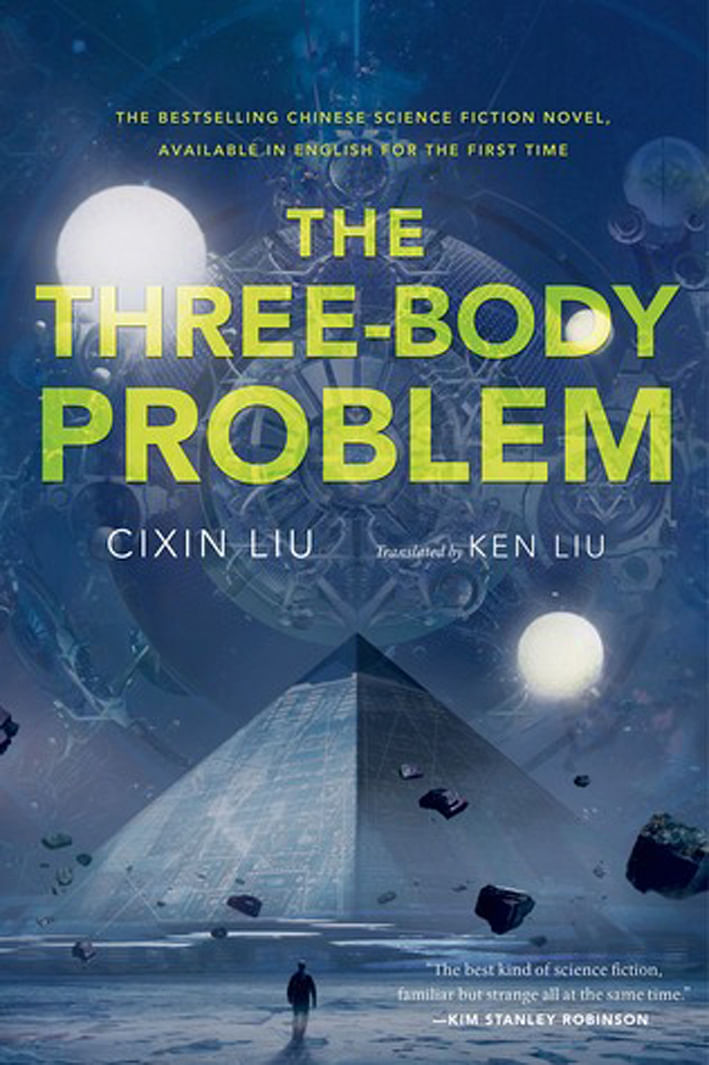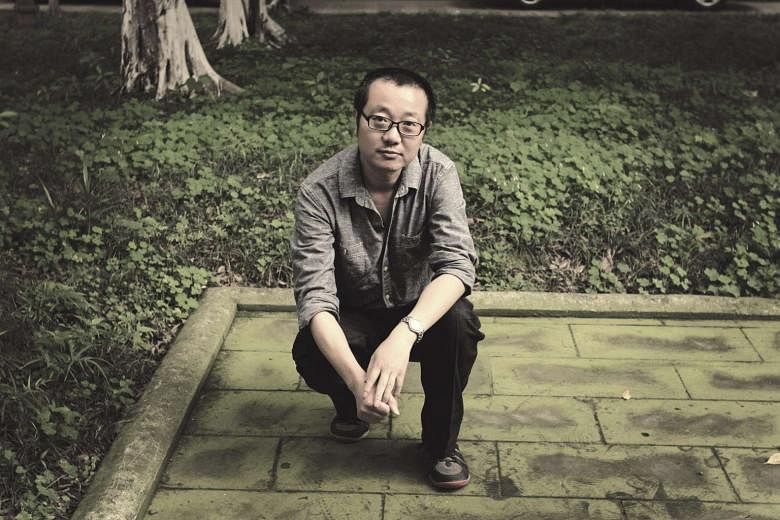BEIJING • Chinese sci-fi bestseller The Three-Body Problem won the 2015 Hugo Award for Best Novel on Sunday, sending ripples of excitement across China's Internet and the sci-fi community.
Liu Cixin becomes the first Asian writer to win the Hugo Award, deemed the highest honour for science-fiction works along with the Nebula Awards.
The announcement was made by the 73rd World Science Fiction Convention in Spokane, Washington.
The Three-Body Problem, the first of Liu's trilogy, won 2,649 votes in the final round of balloting - 200 more than the first runner-up, American novelist Katherine Addison's The Goblin Emperor, it is reported.
His series portrays the centuries of clashes between earthlings and the Trisolaran civilisation living in a three-sun system.

American sci-fi writer Ken Liu, who translated the book into English, accepted the award on behalf of Liu Cixin on Sunday, according to reports. The book was published in the United States last November.
In a telephone interview with Xinhua, Liu Cixin said he was "very happy" about the accolade, but will treat the award with a humble attitude and would not get overwhelmed.
The 52-year-old power plant engineer said the accolade would boost the export of Chinese sci-fi works to the United States and help Americans better understand Chinese sci-fi, but he refrained from overestimating its boost to China's sci-fi writing.
"Science-fiction writing across the world is on a decline... which I assume is because technology is losing its mystery, while mystery is an important backbone of sci-fi composition," he said.
Science fiction remains a small literary genre in China despite people's love of new-tech gadgets such as Apple Watch and Hollywood sci-fi films.
But enthusiasm for it has been fanned up in recent years by news such as the announcement that the movie adaptation of The Three-Body Problem has completed filming and will hit screens in China next year.
On Sunday, China's cyberspace crackled with posts extending congratulations and expressing pride.
"Science fiction is born and raised in the West, but has also found fertile land in the Orient," Professor Yan Feng at Fudan University, a sci-fi critic, commented on his microblog.
"It marks a historical breakthrough for China's sci-fi," said Mr Yao Haijun, chief editor of Science Fiction World, China's largest sci-fi magazine. Mr Yao expected the start of an "equal exchange" between Chinese and English sci-fi to change the largely one-way introduction of English works into China in the past.
"Moreover, even though Liu created this miraculous work several years ago, we had little confidence back then. This prize will help us re-evaluate our sci-fi," he told Xinhua.
Professor Wu Yan of Beijing Normal University, also a sci-fi critic, predicted that a sci-fi reading fever following the award.
He said people will pay more attention to Chinese sci-fi writers and their works, and boost China's sci-fi industry.
Prof Wu attributed Liu's Hugo success to the novel's high quality, and efforts by Chinese publishers, the book's translator and die-hard fans' to promote it .
Published in China between 2006 and 2010, the trilogy has been hailed as the best Chinese sci-fi series with more than one million copies sold in China. But its first book was not translated into English until last year.
The Dark Forest, the second instalment of the saga, became available in the US earlier this month and the translation of the last book, Death's End, is expected to hit shelves next year.
XINHUA

